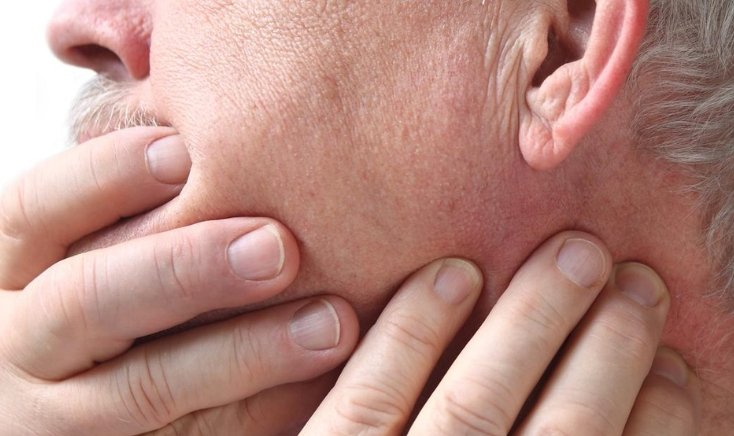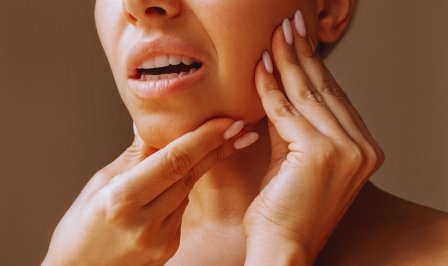

Temporomandibular joint (TMJ) disorder, commonly known as TMJ, is a condition that affects the jaw and the muscles around it. It can cause pain, discomfort, and difficulty moving your jaw. For those living with TMJ, finding effective TMJ pain relief is essential to improve their quality of life.
While dental treatments and therapies can help, one of the most overlooked solutions is adopting a healthy lifestyle. Yes, the way you live can have a significant impact on managing TMJ disorder.
In this blog, we’ll explore how making simple lifestyle changes can help ease your TMJ pain and improve your overall well-being.
A Healthy Lifestyle: Key To TMJ Pain Relief
While there’s no one-size-fits-all solution for TMJ pain relief, leading a healthy lifestyle can help ease the symptoms and reduce the frequency of flare-ups. Here are some lifestyle changes that can make a significant difference in managing TMJ disorder.
1. Stress Management
Stress is one of the leading causes of TMJ disorder. It can lead to teeth grinding and jaw clenching, which can aggravate the condition. Learning to manage stress can have a positive impact on your TMJ pain relief.
- Relaxation techniques: Meditation, deep breathing, and yoga are excellent ways to reduce stress and prevent jaw clenching. These techniques help your body relax and ease tension in the jaw muscles.
- Regular exercise: Physical activity is an effective way to reduce overall stress levels. Exercise releases endorphins, the body’s natural mood elevators, which help keep stress at bay.
2. Good Posture
Believe it or not, poor posture can contribute to TMJ disorder. When you slouch or hunch over, your neck and jaw muscles become misaligned, leading to increased tension in the jaw. Practicing good posture can help reduce this strain.
- Sit up straight: When sitting, keep your back straight, shoulders relaxed, and your head aligned with your spine. Avoid slumping or leaning forward.
- Mind your neck: Pay attention to your posture, especially when using electronic devices. Avoid looking down for extended periods, which can strain your neck and jaw.
3. Diet and Hydration
Your diet plays a vital role in overall health, including your jaw and teeth. A poor diet can lead to inflammation, which can worsen TMJ pain.
- Eat anti-inflammatory foods: Incorporate foods rich in omega-3 fatty acids, such as fish, walnuts, and flaxseeds, to reduce inflammation in the body. Leafy greens, berries, and other fruits and vegetables are also great for overall health.
- Stay hydrated: Drinking enough water helps keep your muscles and joints hydrated, reducing stiffness and discomfort. Aim for at least eight cups of water per day.
4. Sleep Well
Good quality sleep is essential for managing TMJ pain. Poor sleep can increase stress levels and lead to teeth grinding, which worsens TMJ disorder.
- Get enough sleep: Aim for 7-9 hours of quality sleep each night. Creating a relaxing bedtime routine can help you wind down and improve your sleep quality.
- Use a mouthguard: If you grind your teeth at night, talk to a dentist about getting a mouthguard. A custom-fitted mouthguard can help protect your teeth and reduce strain on your jaw.
5. Exercise Your Jaw
Gentle jaw exercises can help strengthen the muscles around the temporomandibular joint and improve its flexibility. This can reduce pain and stiffness, allowing for better movement.
- Jaw stretches: Open and close your mouth slowly and gently to stretch the jaw muscles. You can also move your jaw from side to side to increase its range of motion.
- Massage: Gently massaging your jaw muscles can help reduce tension and promote relaxation.
6. Regular Dental Checkups
While this isn’t strictly a lifestyle change, visiting a dentist regularly is crucial for managing TMJ disorder. They can assess the condition of your jaw and recommend treatments such as a night guard or physical therapy.
According to the American Dental Association, approximately 10 million Americans suffer from TMJ disorders, making it a common condition. However, only 20% of those individuals seek professional treatment, relying on lifestyle changes and home remedies to manage their pain.
If your symptoms persist, it’s essential to seek professional treatment from our TMJ specialist. Take charge of your health and make small, sustainable changes that can help you enjoy long-term relief from TMJ pain. With the right lifestyle adjustments, you’ll be on your way to a more comfortable, pain-free life.



